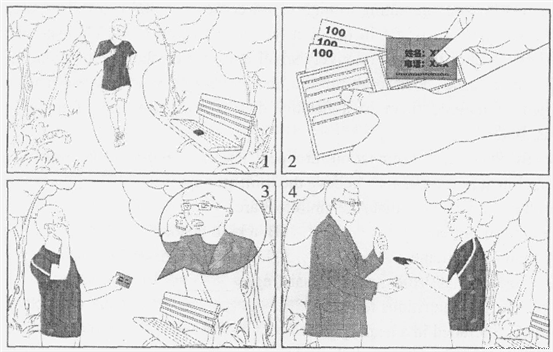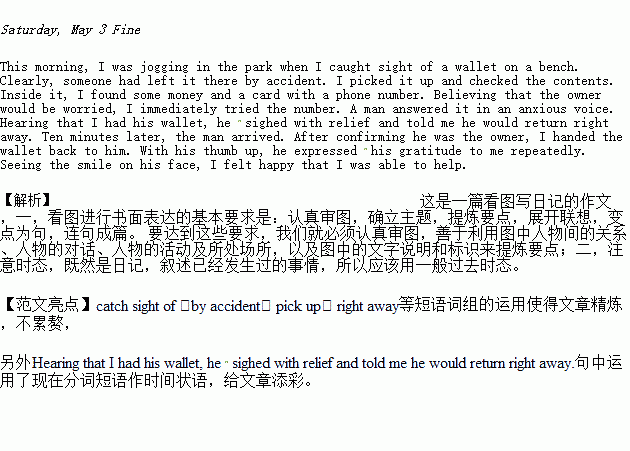题目内容
假设你是红星中学高三(1)班的学生李华,校报英文版正在开展“续写雷锋日记”活动。请根据以下四幅图的先后顺序,将你所做的一件好事以日记形式记述下来,向校报投稿。
注意:1. 日记的开头已为你写好。
2. 词数不少于60。

Saturday, May 3 Fine
This morning,_____________________________________________________________________________
____________________________________________________________________________________________
____________________________________________________________________________________________
____________________________________________________________________________________________
____________________________________________________________________________________________
____________________________________________________________________________________________
____________________________________________________________________________________________
____________________________________________________________________________________________
____________________________________________________________________________________________
____________________________________________________________________________________________
____________________________________________________________________________________________
____________________________________________________________________
 天天向上一本好卷系列答案
天天向上一本好卷系列答案 小学生10分钟应用题系列答案
小学生10分钟应用题系列答案
